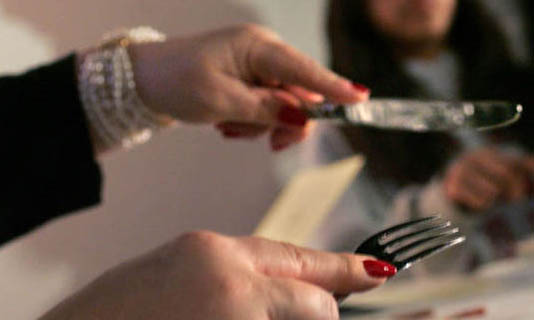 I realize, with the topic, which I recommend to you, may raise a lot of opposition, type: “Receiving guests - wouldn't it be better to postpone such considerations until better times come??”
I realize, with the topic, which I recommend to you, may raise a lot of opposition, type: “Receiving guests - wouldn't it be better to postpone such considerations until better times come??”
I understand the objections, I even share them partially, but it is also true, that all - always and everywhere - the advent of those "better times."” they barely expect or locate them in some more or less distant future. Declarations, that we have entered the golden age, to be submitted by ordinary ones, whose public activity is effectively delaying the advent of such an era. Yet life goes on and it is not possible to postpone the vows, birth or annual holidays. Who knows, maybe even the need to meet friends is more vivid at times, when contact with loved ones can warm and brighten the gray reality? In the conditions of the modern world, would it not mean complete isolation to agree to the invitation formulated by Jan Kochanowski?: "Then, visitor, visit me, when everything is in the barn”?
Probably since the emergence of the human species, man has felt the need to satisfy not only his physiological needs, but also mental. Eating was also intended not only to avoid starvation, but also expressing the consumption habits of various social groups. The differences between consumption habits testified to the place of each group in contemporary societies.
German sociologist, Norbert Elias, in his book Transformations of Customs in Western Civilization, he writes:
„…Nothing about table manners is self-evident… Not a spoon, nor a fork or a napkin were invented one day by some ingenious man as a technical instrument with a clearly defined purpose and method of use. Their function has been gradually drafted over the centuries, directly in life and collective use, and this is also how their form is shaped and consolidated. Everyone, even the smallest element of an ever-evolving ritual is accepted infinitely slowly, even such behavior; which seem to us to be quite elementary or quite simply "rational."”, such as the habit of scooping up liquid foods; every action, every manipulation, for example, how to hold and operate a knife, with a spoon or fork, it is standardized step by step. Gradually too, when we look at this sequence of images as a whole, outlines the social mechanism of this standardization…”
This was also the process of creating the so-called. social rules. Great educators of nations have repeatedly pointed to the need to preserve and cultivate these forms, although of course with a desire, to keep them as simple as possible.
